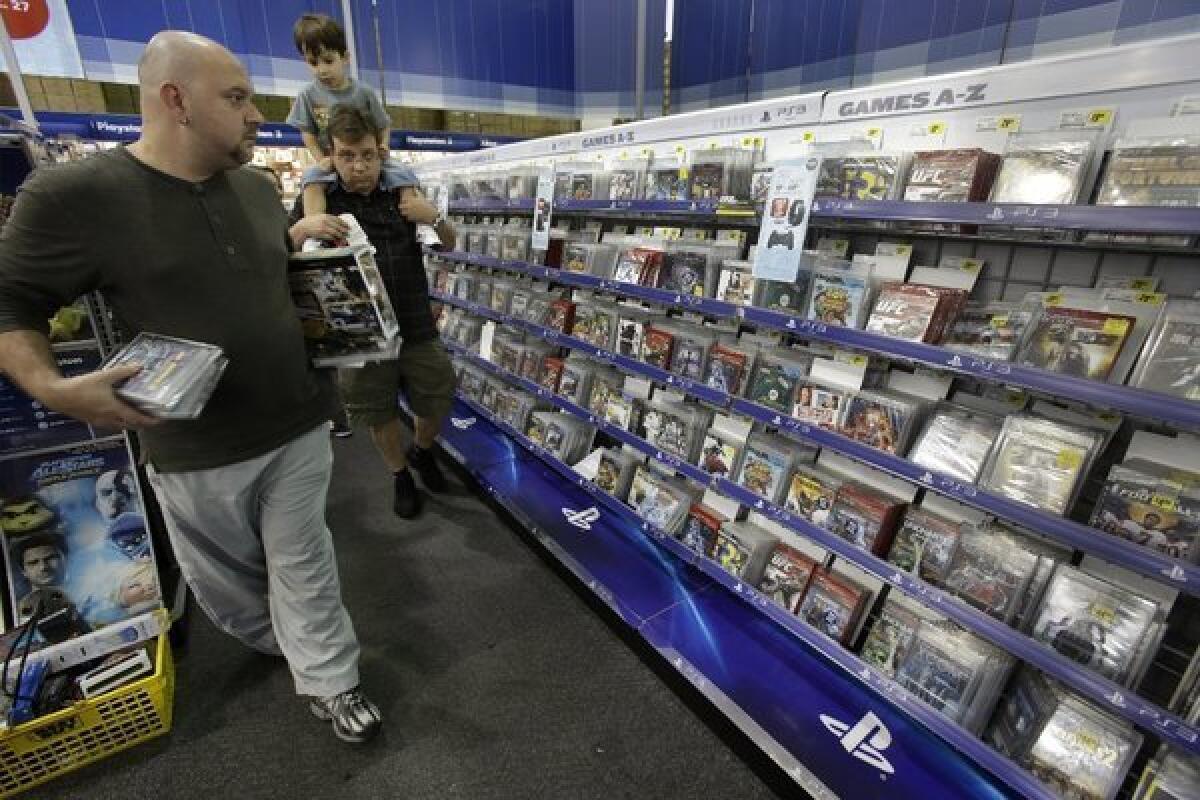Consumer confidence tumbles to 5-month low on ‘fiscal cliff’ fears

- Share via
WASHINGTON -- Consumer confidence plunged this month amid fears that politicians would be unable to resolve the fiscal cliff, triggering another recession next year, according to survey data released Friday.
The closely watched consumer sentiment index from Thomson Reuters and the University of Michigan tumbled in December to 72.9, the lowest level in five months, from 82.7 in November.
The latest figure is even lower than a preliminary December reading of 74.5 reported two weeks ago.
“Confidence is lost much more easily than it can be regained, and the pessimism created by not reaching a resolution before year-end will be difficult to reverse even if a settlement is reached soon after the start of 2013,” said Richard Curtin, the survey’s chief economist.
“Blaming one side or the other for failure will only increase pessimism as it reflects a dysfunctional system for setting economic policy,” he said.
Consumers showed they were particularly fearful of the automatic tax increases set to come Jan. 1.
Those hikes on all Americans, as the George W. Bush-era tax cuts expire, will combine with automatic federal spending cuts to push the nation into recession, most economists say.
One out of four consumers contacted as part of the survey spontaneously mentioned hearing that higher taxes could be coming when asked to identify what economic news they had heard, the highest percentage of respondents since the survey began in 1946.
The consumer confidence level still is well above the index’s level reached in August 2011, during the debate over raising the debt ceiling, when the gauge sank to 54.9, the lowest reading since 1980.
ALSO:
Stocks dive 1% after Boehner’s plan fails in House
Consumer spending and incomes rose in November
U.S. economic growth in third quarter is revised upward
Follow Jim Puzzanghera on Twitter and Google+.
More to Read
Inside the business of entertainment
The Wide Shot brings you news, analysis and insights on everything from streaming wars to production — and what it all means for the future.
You may occasionally receive promotional content from the Los Angeles Times.











